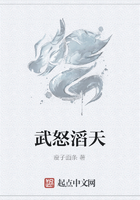But, from the standpoint of the professional politician, all this that the voter sees is a mask, the patriotic veneer to hide the machine, that complex hierarchy of committees ranging from Washington to every cross-roads in the Republic.The committee system, described in a former chapter, was perfected by the Republican party during the days of the Civil War, under the stress of national necessity.The great party leaders were then in Congress.When the assassination of Lincoln placed Andrew Johnson in power, the bitter quarrel between Congress and the President firmly united the Republicans; and in order to carry the mid-election in 1866, they organized a Congressional Campaign Committee to conduct the canvass.This practice has been continued by both parties, and in "off" years it plays a very prominent part in the party campaign.Congress alone, however, was only half the conquest.It was only through control of the Administration that access was gained to the succulent herbage of federal pasturage and that vast political prestige with the voter was achieved.
The President is nominally the head of his party.In reality he may not be; he may be only the President.That depends upon his personality, his desires, his hold upon Congress and upon the people, and upon the circumstances of the hour.During the Grant Administration, as already described, there existed, in every sense of the term, a federal machine.It held Congress, the Executive, and the vast federal patronage in its power.All the federal office-holders, all the postmasters and their assistants, revenue collectors, inspectors, clerks, marshals, deputies, consuls, and ambassadors were a part of the organization, contributing to its maintenance.We often hear today of the "Federal Crowd," a term used to describe such appointees as still subsist on presidential and senatorial favor.In Grant's time, this "crowd" was a genuine machine, constructed, unlike some of its successors, from the center outward.But the "boss" of this machine was not the President.It was controlled by a group of leading Congressmen, who used their power for dictating appointments and framing "desirable" legislation.Grant, in the imagination of the people, symbolized the cause their sacrifices had won; and thus his moral prestige became the cloak of the political plotters.
A number of the ablest men in the Republican party, however, stood aloof; and by 1876 a movement against the manipulators had set in.Civil service reform had become a real issue.Hayes, the "dark horse" who was nominated in that year, declared, in accepting the nomination, that "reform should be thorough, radical, and complete." He promised not to be a candidate for a second term, thus avoiding the temptation, to which almost every President has succumbed, of using the patronage to secure his reelection.The party managers pretended not to hear these promises.And when Hayes, after his inauguration, actually began to put them into force, they set the whole machinery of the party against the President.Matters came to a head when the President issued an order commanding federal office-holders to refrain from political activity.This order was generally defied, especially in New York City in the post-office and customs rings.Two notorious offenders, Cornell and Arthur, were dismissed from office by the President.But the Senate, influenced by Roscoe Conkling's power, refused to confirm the President's new appointees; and under the Tenure of Office Act, which had been passed to tie President Johnson's hands, the offenders remained in office over a year.The fight disciplined the President and the machine in about equal proportions.The President became more amenable and the machine less arbitrary.
President Garfield attempted the impossible feat of obliging both the politicians and the reformers.He was persuaded to make nominations to federal offices in New York without consulting either of the senators from that State, Conkling and Platt.
Conkling appealed to the Senate to reject the New York appointees sent in by the President.The Senate failed to sustain him.
Conkling and his colleague Platt resigned from the Senate and appealed to the New York legislature, which also refused to sustain them.
While this absurd farce was going on, a more serious ferment was brewing.On July 2, 1881, President Garfield was assassinated by a disappointed office-seeker named Guiteau.The attention of the people was suddenly turned from the ridiculous diversion of the Conkling incident to the tragedy and its cause.They saw the chief office in their gift a mere pawn in the game of place-seekers, the time and energy of their President wasted in bickerings with congressmen over petty appointments, and the machinery of their Government dominated by the machinery of the party for ignoble or selfish ends.
At last the advocates of reform found their opportunity.In 1883the Civil Service Act was passed, taking from the President about 14,000 appointments.Since then nearly every President, towards the end of his term, especially his second term, has added to the numbers, until nearly two-thirds of the federal offices are now filled by examination.President Cleveland during his second term made sweeping additions.President Roosevelt found about 100,000in the classified service and left 200,000.President Taft, before his retirement, placed in the classified service assistant postmasters and clerks in first and second-class postoffices, about 42,000 rural delivery carriers, and over 20,000 skilled workers in the navy yards.














